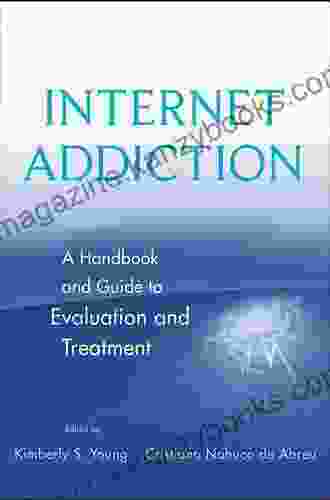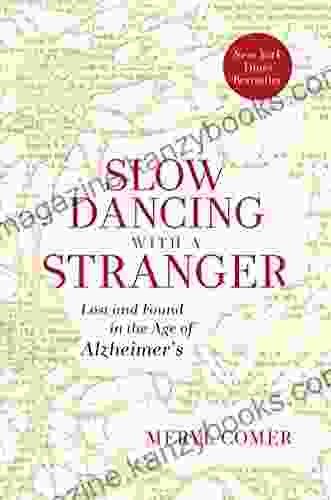Semantic Knowledge Representation for Information Retrieval: Unlocking the Power of Meaning

In the vast and ever-expanding digital landscape, the ability to effectively retrieve relevant information is crucial. However, traditional information retrieval approaches often fall short in understanding the true meaning and relationships within textual data. This is where Semantic Knowledge Representation comes into play, offering a paradigm shift in information retrieval by capturing and utilizing the semantics of language.
What is Semantic Knowledge Representation?
Semantic knowledge representation is the process of capturing and representing the meaning and relationships within text using formal structures. These structures, known as ontologies and knowledge graphs, provide a shared understanding of concepts, their properties, and their interconnections.
4.9 out of 5
| Language | : | English |
| File size | : | 10227 KB |
| Text-to-Speech | : | Enabled |
| Screen Reader | : | Supported |
| Enhanced typesetting | : | Enabled |
| Print length | : | 449 pages |
Ontologies are organized taxonomies that define the concepts and their relationships in a specific domain. For example, an ontology for the medical domain might include concepts such as "disease," "symptom," and "treatment," and define their hierarchical relationships.
Knowledge graphs, on the other hand, are networks that represent interconnected pieces of knowledge. They can model complex relationships between concepts, events, and entities. For instance, a knowledge graph could capture the relationship between a particular disease, its symptoms, and recommended treatments.
Benefits of Semantic Knowledge Representation for Information Retrieval
Integrating semantic knowledge representation into information retrieval systems offers numerous benefits:
- Improved Accuracy and Precision: Semantic knowledge provides a deeper understanding of the meaning of documents, enabling more accurate and precise retrieval of relevant information.
- Disambiguation of Ambiguous Terms: Ontologies and knowledge graphs help resolve ambiguities in language, ensuring that different interpretations of the same term are correctly handled.
- Enhanced Exploration and Navigation: Semantic representations allow for the exploration and navigation of information spaces based on semantic relationships, providing users with a more intuitive and flexible way to access information.
- Cross-Domain Knowledge Integration: Ontologies and knowledge graphs facilitate the integration of knowledge across different domains, enabling more comprehensive and holistic information retrieval.
Applications of Semantic Knowledge Representation in Information Retrieval
Semantic knowledge representation finds applications in various domains of information retrieval:
- Search Engines: Semantic search engines utilize ontologies and knowledge graphs to enhance the relevance and quality of search results.
- Question Answering Systems: Semantic knowledge provides a structured framework for answering complex natural language questions with high accuracy.
- Recommendation Systems: Ontologies and knowledge graphs support personalized recommendations by capturing user preferences and modeling relationships between items.
- Medical Information Retrieval: Semantic knowledge representation enables the effective retrieval and analysis of medical information, facilitating clinical decision-making.
Challenges and Future Directions
While semantic knowledge representation offers significant advantages, it also presents challenges:
- Ontology and Knowledge Graph Construction: Developing and maintaining ontologies and knowledge graphs is a complex and time-consuming process.
- Data Quality and Integration: Ensuring the quality and consistency of knowledge sources is crucial for reliable information retrieval.
- Scalability and Performance: Handling large-scale semantic knowledge bases can be computationally intensive.
Current research in semantic knowledge representation focuses on addressing these challenges through automated ontology construction, machine learning techniques, and distributed computing.
Semantic Knowledge Representation for Information Retrieval provides a comprehensive overview of this transformative approach for enhancing the accuracy, precision, and usability of information retrieval systems. By capturing and utilizing the semantics of language, we unlock the power of meaning and pave the way for a future where information retrieval is truly intelligent and user-centric.
4.9 out of 5
| Language | : | English |
| File size | : | 10227 KB |
| Text-to-Speech | : | Enabled |
| Screen Reader | : | Supported |
| Enhanced typesetting | : | Enabled |
| Print length | : | 449 pages |
Do you want to contribute by writing guest posts on this blog?
Please contact us and send us a resume of previous articles that you have written.
 Book
Book Novel
Novel Page
Page Chapter
Chapter Text
Text Story
Story Genre
Genre Reader
Reader Library
Library Paperback
Paperback E-book
E-book Magazine
Magazine Newspaper
Newspaper Paragraph
Paragraph Sentence
Sentence Bookmark
Bookmark Shelf
Shelf Glossary
Glossary Bibliography
Bibliography Foreword
Foreword Preface
Preface Synopsis
Synopsis Annotation
Annotation Footnote
Footnote Manuscript
Manuscript Scroll
Scroll Codex
Codex Tome
Tome Bestseller
Bestseller Classics
Classics Library card
Library card Narrative
Narrative Biography
Biography Autobiography
Autobiography Memoir
Memoir Reference
Reference Encyclopedia
Encyclopedia Roberta Schneider
Roberta Schneider Susan Weis Bohlen
Susan Weis Bohlen Mitch Stokes
Mitch Stokes Ken Wilson
Ken Wilson Sandra Ingerman
Sandra Ingerman Stacey Robbins
Stacey Robbins Phillip Mountrose
Phillip Mountrose Suzanne Dunaway
Suzanne Dunaway Ken Beaven
Ken Beaven Rana Conway
Rana Conway Kelly Elliot
Kelly Elliot Nick Bostrom
Nick Bostrom Khoa Nam Tran
Khoa Nam Tran Sheridan Voysey
Sheridan Voysey Kimberly Poston Miller
Kimberly Poston Miller Vincent Barletta
Vincent Barletta Kerry Shook
Kerry Shook Keping Wang
Keping Wang Tiffany Dawn Kohnen
Tiffany Dawn Kohnen Kevin Hunter
Kevin Hunter
Light bulbAdvertise smarter! Our strategic ad space ensures maximum exposure. Reserve your spot today!
 Langston HughesFollow ·13.3k
Langston HughesFollow ·13.3k Alex FosterFollow ·4.3k
Alex FosterFollow ·4.3k Charles BukowskiFollow ·14.9k
Charles BukowskiFollow ·14.9k Joshua ReedFollow ·6.1k
Joshua ReedFollow ·6.1k Trevor BellFollow ·8k
Trevor BellFollow ·8k Cole PowellFollow ·14.6k
Cole PowellFollow ·14.6k Aron CoxFollow ·11.5k
Aron CoxFollow ·11.5k Leslie CarterFollow ·12.2k
Leslie CarterFollow ·12.2k

 Ernesto Sabato
Ernesto SabatoLoving Table: Creating Memorable Gatherings
Gatherings...

 Mark Twain
Mark TwainLifestyle After Cancer: The Facts
Cancer is a life-changing...

 Keith Cox
Keith CoxUnlocking the Nutritional Needs of Individuals with...
Individuals with physical disabilities...

 Rubén Darío
Rubén DaríoHandbook And Guide To Evaluation And Treatment
Empowering Healthcare...

 Andy Hayes
Andy HayesUnveiling the Truth: "Garden Myths" by Robert Pavlis...
The world of gardening is often filled with a...
4.9 out of 5
| Language | : | English |
| File size | : | 10227 KB |
| Text-to-Speech | : | Enabled |
| Screen Reader | : | Supported |
| Enhanced typesetting | : | Enabled |
| Print length | : | 449 pages |













